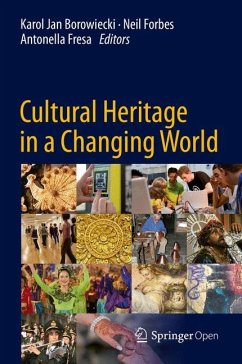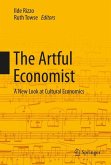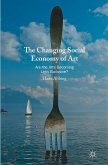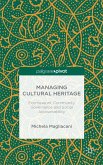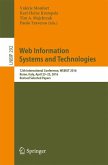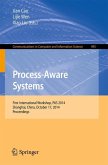The central purpose of this collection of essays is to make a creative addition to the debates surrounding the cultural heritage domain. In the 21st century the world faces epochal changes which affect every part of society, including the arenas in which cultural heritage is made, held, collected, curated, exhibited, or simply exists. The book is about these changes; about the decentring of culture and cultural heritage away from institutional structures towards the individual; about the questions which the advent of digital technologies is demanding that we ask and answer in relation to how we understand, collect and make available Europe's cultural heritage. Cultural heritage has enormous potential in terms of its contribution to improving the quality of life for people, understanding the past, assisting territorial cohesion, driving economic growth, opening up employment opportunities and supporting wider developments such as improvements in education and in artistic careers. Given that spectrum of possible benefits to society, the range of studies that follow here are intended to be a resource and stimulus to help inform not just professionals in the sector but all those with an interest in cultural heritage.
The central purpose of this collection of essays is to make a creative addition to the debates surrounding the cultural heritage domain. In the 21st century the world faces epochal changes which affect every part of society, including the arenas in which cultural heritage is made, held, collected, curated, exhibited, or simply exists. The book is about these changes; about the decentring of culture and cultural heritage away from institutional structures towards the individual; about the questions which the advent of digital technologies is demanding that we ask and answer in relation to how we understand, collect and make available Europe's cultural heritage. Cultural heritage has enormous potential in terms of its contribution to improving the quality of life for people, understanding the past, assisting territorial cohesion, driving economic growth, opening up employment opportunities and supporting wider developments such as improvements in education and in artistic careers. Given that spectrum of possible benefits to society, the range of studies that follow here are intended to be a resource and stimulus to help inform not just professionals in the sector but all those with an interest in cultural heritage.
The central purpose of this collection of essays is to make a creative addition to the debates surrounding the cultural heritage domain. In the 21st century the world faces epochal changes which affect every part of society, including the arenas in which cultural heritage is made, held, collected, curated, exhibited, or simply exists. The book is about these changes; about the decentring of culture and cultural heritage away from institutional structures towards the individual; about the questions which the advent of digital technologies is demanding that we ask and answer in relation to how we understand, collect and make available Europe's cultural heritage. Cultural heritage has enormous potential in terms of its contribution to improving the quality of life for people, understanding the past, assisting territorial cohesion, driving economic growth, opening up employment opportunities and supporting wider developments such as improvements in education and in artistic careers. Given that spectrum of possible benefits to society, the range of studies that follow here are intended to be a resource and stimulus to help inform not just professionals in the sector but all those with an interest in cultural heritage.
"Cultural Heritage in a Changing World contributes to deepen and expand the debate about the current evolution of the role of cultural heritage in societies on several directions. ... book primarily provides a European perspective to the changes occurring in the cultural heritage domain. ... given the pervasive and rapid adoption of digital technologies worldwide, much of the reflections and findings presented in this book can be useful for cultural heritage practitioners and scholars in other parts of the world." (Enrico Bertacchini, Journal of Cultural Economy, Vol. 41, 2017)
"The book gives a comprehensive view on issues of cultural heritage and digital technologies. ... the collection does give an excellent illustration of how the digital age has changed cultural heritage and museums, as well as the methods of adapting to these changes. ... this book is relatively easy to understand, making it suitable not just for professionals, but also students and enthusiasts of the field." (Ashika Prajnya Paramita, Humaniora, Vol. 28 (3), October, 2016)
"The book gives a comprehensive view on issues of cultural heritage and digital technologies. ... the collection does give an excellent illustration of how the digital age has changed cultural heritage and museums, as well as the methods of adapting to these changes. ... this book is relatively easy to understand, making it suitable not just for professionals, but also students and enthusiasts of the field." (Ashika Prajnya Paramita, Humaniora, Vol. 28 (3), October, 2016)

